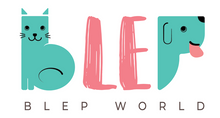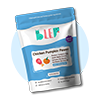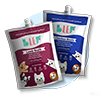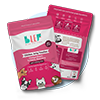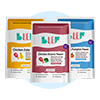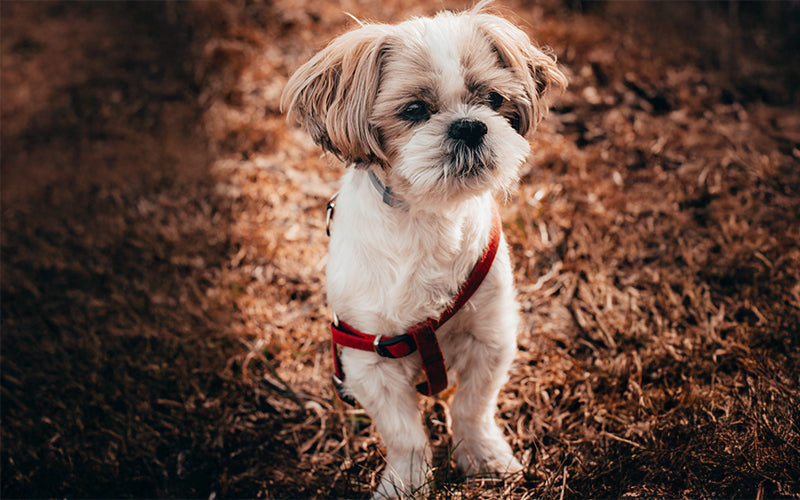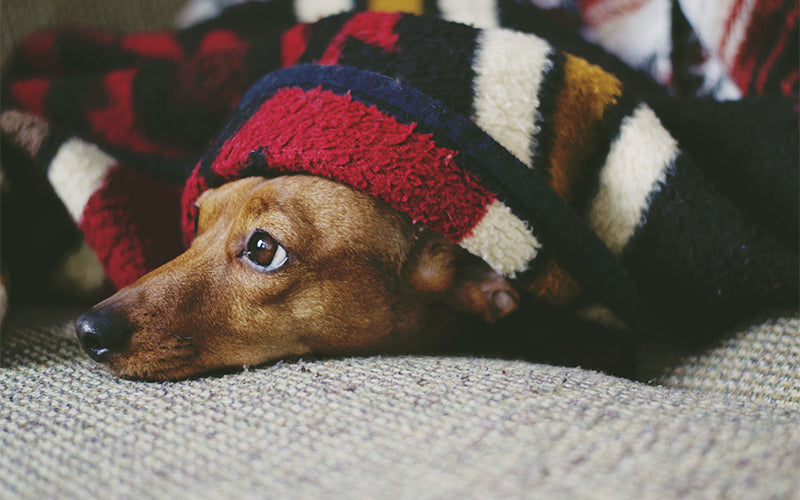The Siberian Husky is one of the most beautiful dog breeds in the world, with its white and black fur, erect ears, athletic build, and piercing eyes. As house pets, they are known for their goofy, stubborn, and endearing behaviour; their musical and almost-human vocalisations are popular all over the internet. However, the origin of the Husky breed was quite different than what you would think, considering their popular image today.
The history of the Siberian Husky breed
The original habitat of the Siberian Husky was in Northeast Asia, primarily in Siberia. They were used as sledge-pulling dogs and companion animals by a number of communities, such as the Chukchi people, the Koryak people, the Yukaghir people and the Kamchadal people.
During the Nome Gold Rush of the early 1900s, a Russian fur trader named William Goosak saw their immense potential as working dogs and introduced them to Nome, Alaska. Here, they started working as sled dogs for the mining fields as well as expedition dogs that could work in the bitter terrain.
The Siberian Arctic has a very harsh and cold environment, so Huskies are adapted to it; they have a rich, furry double coat, and they’re extremely active, energetic, and resilient. Nowadays, the Husky is mainly kept as a companion animal or house pet, though some still use them as sledge dogs for competitions and recreational activities.

Common health problems of Siberian Huskies
Eye Conditions:
Siberian Huskies are very prone to issues related to their eyes. Some common problems include cataracts, Progressive Retinal Atrophy, Corneal Dystrophy, Uveodermatologic Syndrome, etc. This is why food rich in beta-carotene, vitamin A, and omega-3 is helpful.
Hip Dysplasia:
Active breeds like Siberian Huskies often suffer from bone and joint issues like hip dysplasia. That’s why food rich in calcium, vitamin D, collagen, and protein is very important for Huskies. Apart from that, obesity can put a lot of pressure on joints, so overfeeding should be strictly avoided.
Hypothyroidism:
Huskies are prone to hypothyroidism, in which the thyroid gland weakens and fails to produce enough hormones that regulate a number of bodily functions. Problems could include weight gain, lethargy, skin and coat problems, etc.
What are the nutritional needs of Huskies?
Huskies are a very active, athletic breed. They are fast and have incredible endurance and stamina. This means that, no matter whether they are working dogs or house pets, they need a lot of physical activity. About 2 hours of physical exercise is required by them each day for optimal health. Therefore, Huskies need a lot of nutrients in their diet:
Protein: Siberian Huskies need a lot of protein in their diet: about 25-30% or more. But just giving them a large amount of protein is not enough. They need high-quality, animal-based protein like chicken, lamb, fish, eggs, etc. to maintain their lean muscle mass and tone, as well as their energy and stamina.
Fats: Huskies need a lot of energy to support their active lifestyle. Most of this energy should come from fats, so they need about 18% to 20% fat in their diet. Some healthy sources of fat for Huskies are fish oils (rich in omega-3s), fatty fish, flaxseeds, chicken, etc.
Carbohydrates: Dogs can digest some carbohydrates; however, they do not actively need them. It should also not be their primary source of energy. Huskies have high metabolisms, so excessively starchy food can actually cause them to become overweight. Therefore, the carbs in a Husky’s diet should be high in fibre and low in calories.
Vitamins and minerals: Vitamins and minerals are essential for the working of a Husky’s body. Calcium and phosphorus are very important for the bones and joints of active dogs like Huskies. They also prevent hip dysplasia, a major issue in Huskies. The eyes are sensitive in this breed, so vitamin A is of utmost importance. Iodine helps in keeping the thyroid healthy, another point of issue for Huskies.
Water: Siberian Huskies do a lot of physical activity, which depletes their body’s water reserves. They need water for body temperature regulation, proper metabolism, etc., so making sure they drink enough is crucial. As Huskies aren’t big fans of drinking water, hydrating food like wet food and bone broth can also help.

What to feed your Siberian Husky in India?
The Siberian Husky is obviously not a breed meant for the climate in most parts of India. The mostly tropical, humid climate of India can actually be detrimental to your Siberian Husky’s health and well-being. In spite of this, Huskies have become a popular dog breed to keep as pets in Indian homes, so here are some things you should keep in mind while feeding Siberian Huskies in India:
High-protein food for muscles:
Siberian Huskies need a lot of protein to maintain their athletic body. Now, protein builds muscles, maintains tone, and even helps in healing. It is crucial for the essential bodily functions of the body. Large parts of India eat a vegetarian diet. But it is very difficult to fulfil the high protein needs of a Husky with plant protein. So, as far as possible, try to give Huskies an animal protein-based diet. If not at all possible, carefully balance their meal with plant protein sources like paneer, quinoa, chickpeas, etc.
Low-carb food for preventing obesity:
Huskies are a very active breed, so they need a lot of calories. However, in India, most huskies live in a small space like an apartment. It is debatable whether they regularly get 2 hours of rigorous exercise. So, high-carbohydrate food can cause them to gain weight, which can lead to high stress on bones and joints. This may ultimately hamper their ability to move, leading to an overall decline in their health. Low-carb, high-fibre food is best for Huskies in India to keep their weight in check and help with bowel movements.
Bone broths for hydration and maintenance:
Dehydration may be a very big problem for Huskies in the Indian climate, because they tend to overheat if not taken care of properly. So, keeping them hydrated is essential to their well-being. Water, of course, is the primary source of hydration. However, bone broths also work well for hydration, especially since they’re more palatable. Considering the high amounts of collagen in bone broths, it also helps in strengthening and healing bones and joints and keeping coats shiny and healthy.
Natural treats for training:
The Siberian Husky is a highly intelligent and trainable dog breed. Now, training needs rewards, especially for breeds like Huskies who can be quite stubborn and temperamental. Most treats for dogs contain sugar or starch and are made with low-quality ingredients. So, they should be avoided for maintenance of proper weight. Instead, natural ingredients like carrots, blueberries, chicken jerkies, etc. should be given as training rewards. Since India has a lot of good fruits and vegetables available almost all year round, using these can be beneficial instead of ultra-processed treats.
How to keep your Siberian Husky’s coat healthy?
Siberian Huskies have a thick double coat that is quite high maintenance, especially in the hot and humid weather of India. They shed quite a bit all year round, but especially during summer and winter. So, they need to be brushed regularly to control the shedding and keep the coat soft and healthy.
Apart from that, feeding collagen-rich bone broths is also extremely beneficial. Not only does the collagen keep the fur shiny and healthy, but the broth also keeps them hydrated, which is helpful in reducing shedding. Fish oil, fatty fish, eggs, etc. are also helpful.

Common food mistakes that Husky pet parents make in India
Feeding low-quality food: Low-quality food is not only bad for Siberian Huskies, but it may even be dangerous. This is because Huskies need a lot of nutrients to have a healthy and active life, so if they miss out on some essential ones, the deficiency can quickly affect their body. For example, low-quality protein is unable to fulfil their protein requirements, which can cause rapid loss of muscle mass and injuries.
Giving table scraps: A lot of pet parents, even today, feed their dogs table scraps or leftovers. Huskies have unique dietary needs and systems that cannot be sustained by just feeding them whatever human food is available. Oily and spicy food can be especially harmful for their gut and coat.
Adding too much starchy food: Starchy foods like wheat rotis, potatoes, etc. are very bad for dogs in general. When it comes to Huskies, their high metabolism quickly turns starch into glucose. This can then lead to high fat deposits that make them overweight and unhealthy.
Why is it important to feed human-grade food to your Siberian Husky?
Siberian Huskies are a high-maintenance breed; there are no two ways about it. Especially in a country like India, which is very different from its native habitat, Huskies need even more care. They need high physical activity and mental stimulation for a healthy life. But even more important is their need for a healthy, balanced, high-quality diet.
‘Human-grade food’ means that the ingredients used in the food are safe enough for even humans to eat. This usually means that the quality of the ingredients is high and that it doesn’t contain unsafe food like rotten meat, mouldy vegetables, and chemicals as preservatives. This is why feeding your Siberian Husky human-grade food is beneficial, as it ensures that they are getting high-quality food.

Looking to explore more care tips for your furry friend? Check out our other guides like Can Dogs Eat Apples?, Can Dogs Eat Blueberries?, Dog Food for Weight Loss, Raw v/s cooked meat for dogs, Home Remedies to cure tick fever, Finding Good Dog Food in India, How many times should I feed my dog?, Things you should do to keep your pet healthy, Types of Dog Food, Guide to Nutritional Need of Shih Tzu, Common Winter Dog Disease, How does air pollution affect dogs? How much protein does a German Shepherd need?, Tips for new dog care, Puppy Vaccination Guide, Dog Separation Anxiety, Skin Problems in Dogs, Why do Dogs Lick You?, and How Prebiotics and Probiotics can improve your dog's digestion. Each guide is designed to help you make better food choices for your pet because the right diet is what gives you a happy and thriving furball.
Resources:
https://en.wikipedia.org/wiki/Siberian_Husky
https://www.akc.org/dog-breeds/siberian-husky/
https://www.petmd.com/dog/breeds/siberian-husky
https://dccpets.in/pet-care-blog/living-with-a-husky-dog-space-exercise-and-lifestyle-considerations
